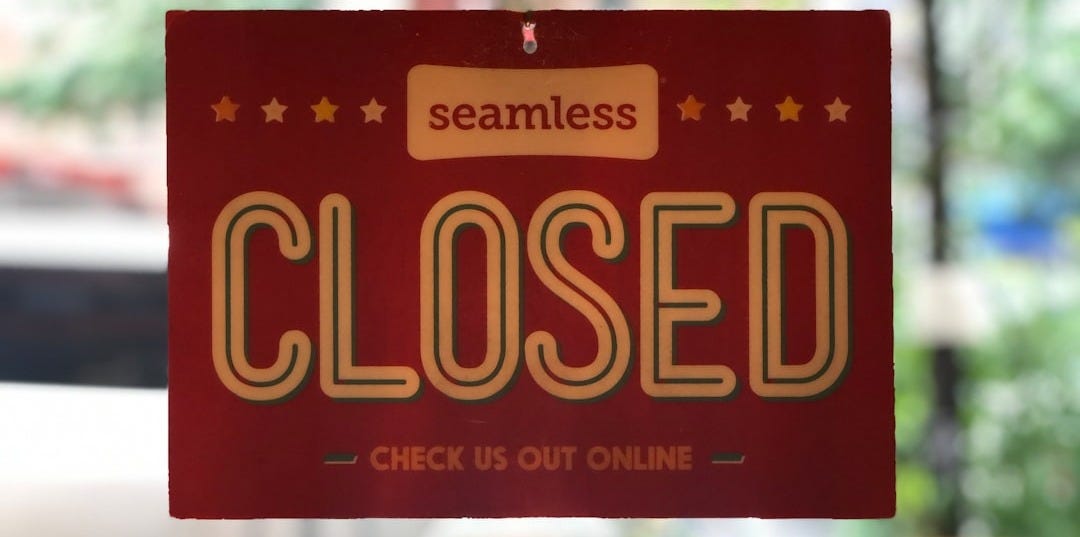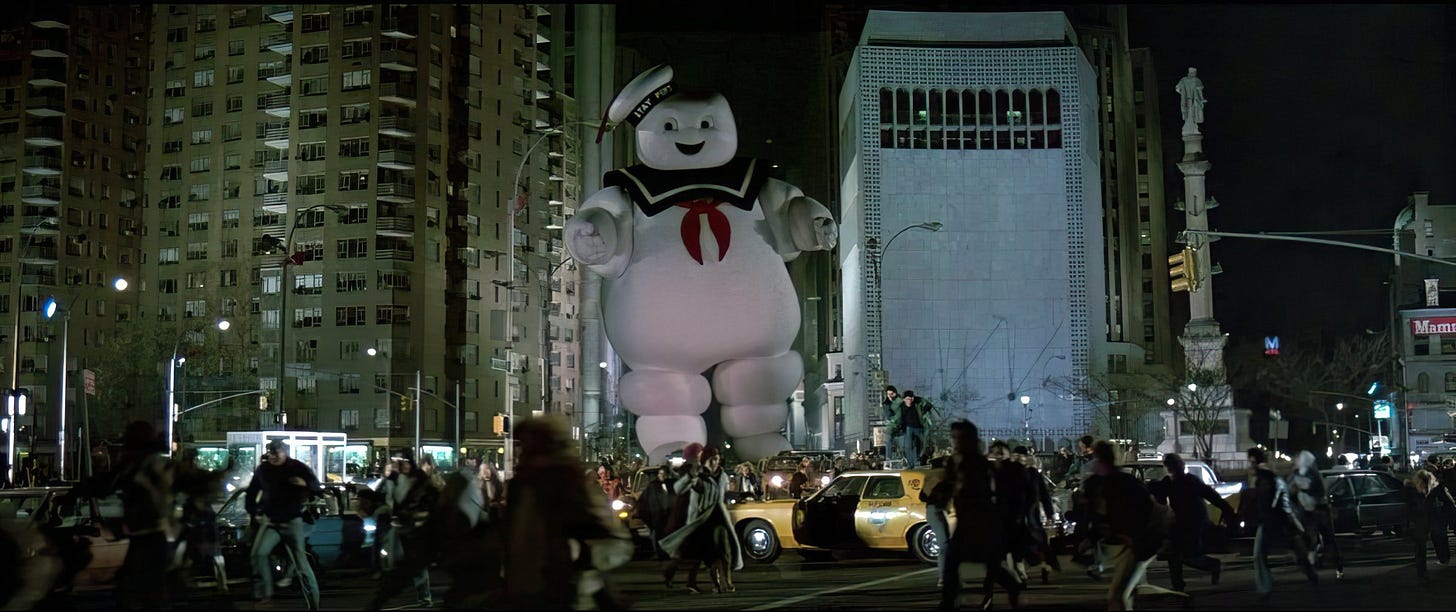Scale Ruins Everything
Your Startup Could Destroy Society
During the Product Bubble, venture capital investments grew from $45 billion to $620 billion. How did speculation in companies that might exist nearly catch up to $1.1 trillion of private equity speculation in companies that do exist? And why did that torrent of money ruin so much?
As we’ve previously discussed, wealth flocked to corporate equity to chase stories that could still come true - what poker players call outs. VC funds created even more outs, bundling otherwise unlikely startups and promising that only a few had to come true.
Massive unicorns were needed to carry all that deadweight, and it turns out that even fluffy and harmless things are absolutely terrifying if you make them big enough.
Lighting the DoD’s R&D Budget on Fire… Three Times
VC funds knew they were putting $300 billion a year into worthless companies at the bubble’s peak, because a typical fund looks like this:
🦄 10% of companies are home runs that provide nearly all the fund’s returns
😑 30% of companies pay for themselves, and maybe give some modest return
💩 60% of companies are complete failures that go to zero
On top of this power distribution, funds had to get an absolutely massive pile of cash into play. They never know exactly who will win or lose, but they chased more and more marginal deal flow to get everything on the table. VC funds now needed to find a hundred unicorns per year to keep their aggregate returns above a Fidelity IRA.
Unicorn Hunting
Off the top of your head, you can probably think of a few ways of making a billion dollar company. For example:
A B2B SaaS Analytics company with $70 million in growing ARR. Doable with a decent product, a great inside sales team, and a few years to ramp up.
A Government Contractor with $80 million in annual EBITDA. Doable with govie relationships across multiple programs, access to primes, and a decade or so to ramp up past performance. A war helps.
A Social Network with 5 million daily users. Doable if you find the right niche, get some sticky viral growth going, and target countries with good GDP/capita.
These aren’t that weird. But the funds need 100 winners, and they can’t all be B2B SaaS Analytics Platforms. Every VC company needs a path to a billion dollar valuation. Ideally multi-billion.
So what does a billion dollar dog food company look like in real life? Sure, you have an Excel model… but what does it look like to feed a million dogs? Where are you going to get a half million pounds of meat every single day? What if you keep growing?
Hundreds of Marshmallow Men
Ghostbusters (1983) isn’t just a top five action-comedy; it’s a prescient look into the weirdness of a unicorn-dominated world. When the Ghostbusters were forced to choose the form of the Destroyer of New York, they tried to think of the most harmless thing. Something that could never destroy us. Oops.
Ray: I tried to think of the most harmless thing… something that could never destroy us…
Mr. Stay Puft.
Venkman: Nice thinking, Ray
Ray: We used to roast Stay Puft Marshmallows. By the fire. At Camp Waconda…
Venkman: Ray has gone by-by Egon… what have you got left?
Egon: Sorry Venkman, I’m terrified beyond the capacity for rational thought.
The Ghostbusters aren’t alone.
Tony, Evan, Andy, and Stanley tried to think of the most harmless thing: a universal food delivery service, expanding the options from just Chinese food and pizza.
Brian, Nathan, and Joe tried to think of the most harmless thing: people making extra money but renting out their spare room for the night.
Travis and Garrett tried to think of the most harmless thing: people making extra money by giving people car rides.
Mark tried to think of the most harmless thing: keeping track of your friends, and organizing group photos. With comments!
Those were the innocuous founding ideas behind DoorDash, AirBnB, Uber, and Facebook. At scale, they would ruin communities, put restaurants out of business, destroy the dream of home ownership, and eventually undermine democracy itself.

Planning for Massive Success
Now that they know those could do so much damage, founders looking for VC funding might think harder about their own ideas. What’s the society-destroying version of bringing back extinct species through gene editing? Not the current business model, or the next one. The one at massive scale that makes them a unicorn. It’s probably not the problem we’re all thinking of.
Uber and AirBnB grew almost in lock-step. Both sets of founders thought that they were on the road to improving society... based on their original idea. Both were unlocking stagnant supply, reducing waste and helping people make money. And they were right at first, as they helped users monetize extra beds and cars for extra cash.
But there simply wasn’t enough extra stuff to hit the scale they needed. They tried encouraging some users users to buy more beds and cars to turn into full-time businesses. Then those users grew to be most of their users. Eventually, they induced so much demand for beds and cars amongst entrepreneurs that they made them less affordable for consumers.
Each company is now valued around $100b. And rents in tourist areas have become unaffordable. Would their younger selves have gone down this path if they knew where it led? Maybe, maybe not.
Breathing Room
Maybe the VC funds themselves will consider whether they actually work at this scale.
Too much wealth flowing into VC exploded assets under management, and caused inefficient investment (not your fund, of course, I mean the other ones). Unicorns had to chase society-bending hyper growth to drag the resulting deadweight ahead of the S&P 500, and that was before the half trillion dollars thrown in during 2021.
The bump in interest rates has cooled things down. Funds, LPs, and founders have some breathing room to consider whether this all makes sense. Is there a billion-dollar version of every idea? Do they need to maximize AUM? Do most funds even beat the market?
Maybe they’ll just put it all in bitcoin.








Air B-n-B and Uber followed a "rental" model that has predictable effects, and whether you consider them negative is a matter of perspective. When you take assets that are underutilized by their owners, and shift to a rental model to allow more efficient utilization of said assets, you increase the value of those assets tremendously, and effectively increase collective wealth.
To the extent it gets ugly, it's when you start maximizing how much value you extract out of the model. If you extract nearly all the value you've added, then the net benefit for everyone else is pretty minimal. This is where competition is supposed to step in to balance things out...
Housing affordability problems come from restrictions on supply, not demand changes. California could end all of its housing affordability problems within a decade by relaxing building codes, promoting residential development and allowing greater density. It will never happen, but it would be an EASY fix. Even Manhattan, with its constrained space, even it could dramatically lower rental prices by allowing greater density, ending height limits, and most of all, allowing developers to build what they want without pleasing local corruption thugs, ahem, I mean community boards.
Here in Chicago, the city frequently requires that high rise apartment buildings build a bunch of three and four bedroom apartments that the market does not want, then requires that new buildings set aside cheap units for public housing. It is a corruption racket where the connected get a free place in a new ritzy building, but it massively increases housing costs. Even worse, new apartment buildings are more or less banned in many neighborhoods, so apartment buildings are leveled and replaced with luxury single family homes. In my neighborhood it is common to see three and four flat apartment buildings with $900-$1300 apartments replaced with $800k to $1m+ single family homes. There is a recent batch facing a factory and a beer distributor (trucks in and out, all day and all night).
Almost all residential neighborhoods are zoned for multi-family, but the city has effectively stopped so much construction, favoring luxury housing. Chicago is CHOOSING gentrification. Never forget that California, New York City, Washington, DC, Boston, ..., they CHOSE gentrification. They can fix it, but they must be willing to upset the real estate barons and the rich @ssholes who think cities should have suburban-level density. If Trump gets elected, I would love for him to start signing executive orders to override urban planning zoning restrictions to massively build out housing in expensive cities. It would be wonderful to watch racist, poor-people-hating Democrats justify their horrific record on housing.
I have lived in Asian cities that have easily built enough housing to keep it affordable. There is no reason why NYC and Chicago cannot have towers and towers of studio and one bedroom apartments that are in high-demand. Frankly, LA and San Francisco could do the same, albeit with higher costs because of earthquake resistance, but even allowing low-rise buildings full of tiny apartments would have a dramatic impact on rents rather quickly. It is not that hard to build out tens of thousands of units that way.
Instead the evil rich people will have a handful of "affordable" units created for $2m each with $300 rents, while ever more market rate housing is destroyed and replaced with more single-family mansions. In a proper market, post-war single family homes would be leveled and replaced with high rises. That is what progress looks like. We do not need a handful of "free" housing, but rather millions of units of market-rate housing. With proper functioning markets, there will be more than enough units for Air B&B to use.
We can fix hour housing problems easily, with simple, broad-based deregulation and the elimination of height and density restrictions. Of course suburbs can remain single family, with perhaps high-rise buildings around train stations, plus parking garages (suburban stations never have enough parking), but it is absurd how cities are promoting single family housing. It is effectively regulating working and middle class people out of our cities, and it needs to stop. Similarly, cities need to massively increase property taxes on single family homes to help the transition along. If people need to have a mansion in Manhattan or San Francisco, let them pay the same taxes as similarly-sized properties with high-rise structures.